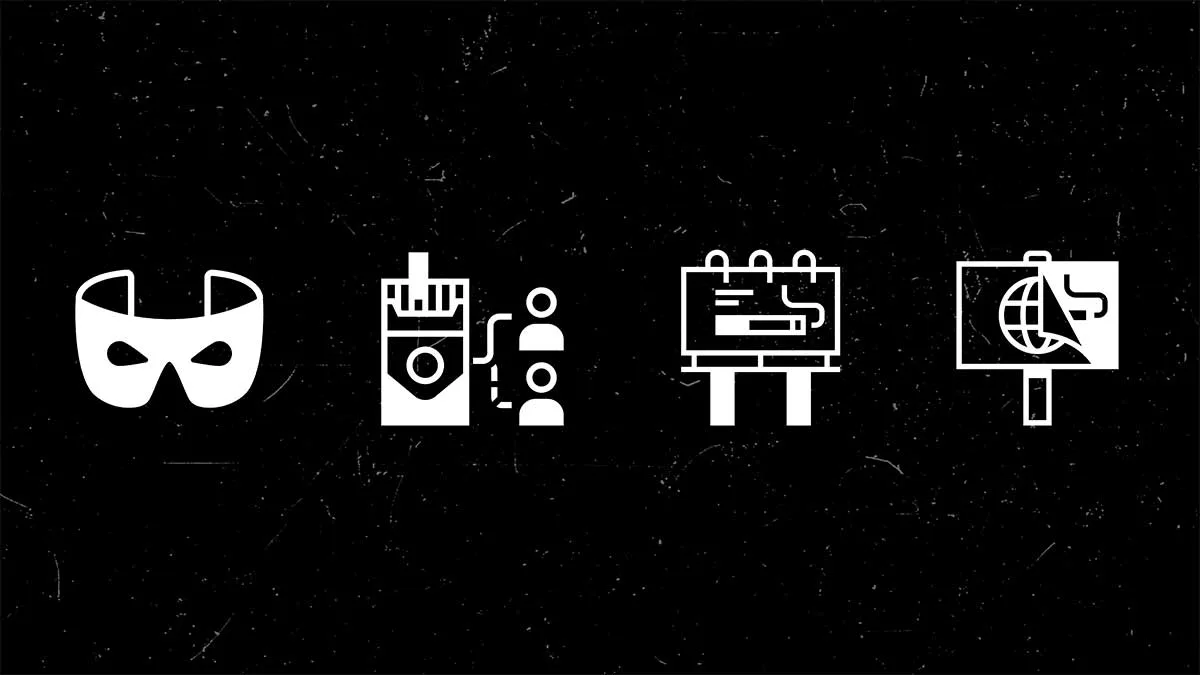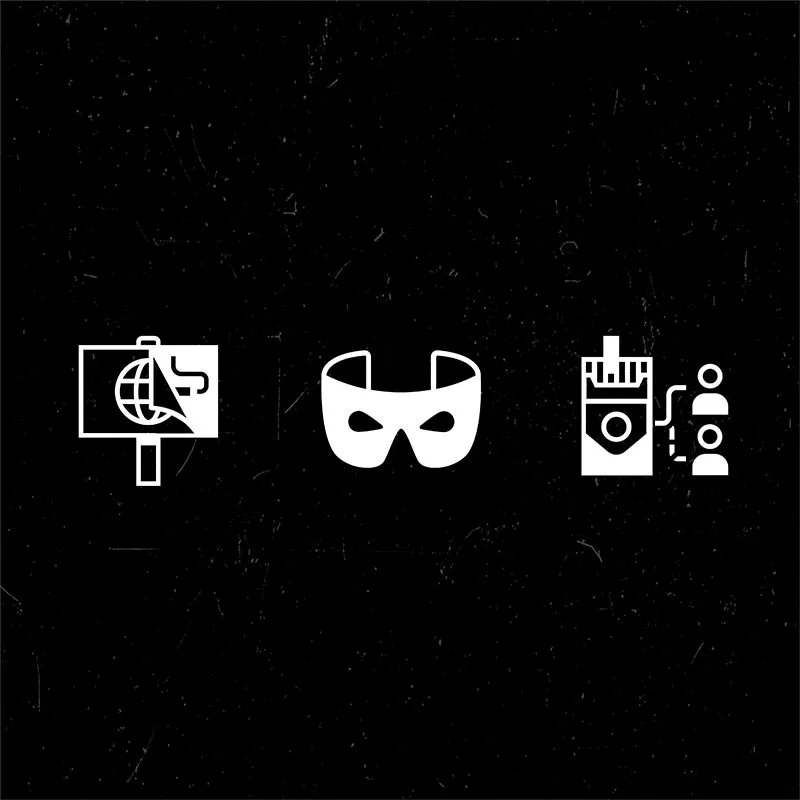- Resources
- News
-
-
Get Email Updates
Sign up for STOP's emails and never miss an update on our latest work and the tobacco industry's activity.
-
Get Funding
Ready to tackle industry interference? You could be eligible for a grant.
-
Share a Tip
Do you have information on tobacco industry misconduct in your country? Let us know.
-
Get Email Updates

There are good reasons many people don’t trust Big Tobacco.
It’s an industry known for its duplicity. For decades, its statements and actions have contradicted each other. For example, some tobacco companies say they want people to quit smoking, but keep making, marketing and selling millions of cigarettes every year. Others say they care about the environment, but continue decimating natural resources to perpetuate the tobacco epidemic.
Because of this, many people have learned not to take tobacco companies for their word. That’s a problem for the industry: The arguments tobacco companies try to make against tobacco control measures aren’t seen as legitimate because they come from a distrustful industry. Enter: the tobacco ally.
What is a tobacco ally?
A tobacco industry ally is a group, organization or person that promotes the tobacco industry’s agenda. Allies are a useful tool for the industry, especially in places where distrust of the industry is high, or where regulations prohibit things like tobacco marketing or industry interaction with policymakers.
Sometimes it’s obvious that an entity represents the interests of Big Tobacco. Some groups have “tobacco” or “cigarette” in their name, like Swiss Cigarette, an alliance of Philip Morris International (PMI), British American Tobacco (BAT) and Japan Tobacco International. The group supported a campaign that argued against new restrictions meant to protect young people from tobacco marketing. Other allies sound neutral or unrelated to tobacco, including the Property Rights Alliance and the Petrol Retailers Association, both of which have ties to the industry and have lobbied against measures designed to reduce tobacco use, such as plain packaging. And others sound anti-industry, such as the Foundation for a Smoke-Free World—an organization founded and fully funded by the world’s largest transnational tobacco company, PMI.
In 2019, STOP researchers released a database of nearly 100 groups that support the industry’s agenda. While these groups appear to be concentrated in the United Kingdom and the United States, tobacco allies have been identified all over the world.
The researchers organized the allies into a number of categories. Some are classified as front groups, which tend to have the strongest alignment with the industry’s messaging. They often claim to be independent, but many have been established by or receive funding or direction from corporate interests. Some are classified as “astroturf” groups. These groups are linked to the industry, and earn their name by recruiting supporters (real or fake) to advocate for an industry-friendly position, giving the appearance of a grassroots movement. Other allies are known as third parties—seemingly independent organizations that lobby or publicly support an industry-friendly issue on behalf of tobacco companies. And some allies specialize in furthering the industry’s interests via marketing and promotion.

Allies can pave the way for interaction between the tobacco industry and policymakers, posing significant threats to the advancement of tobacco control measures.
The threats posed by tobacco allies
Beyond the obvious problem of amplifying the industry’s messaging, perhaps the biggest threat allies pose is their ability to create the illusion of organic, widespread support for industry arguments.
When an ally conceals its links to the tobacco industry, those on the receiving end of its arguments can mistake those arguments as independent and non-biased—even when the ally may be receiving tobacco industry money or collaborating with a tobacco company. It lends credibility to arguments originating from a discredited industry.
Allies can also pave the way for interaction between the tobacco industry and policymakers, posing significant threats to the advancement of tobacco control measures. Article 5.3 of the World Health Organization Framework Convention on Tobacco Control, a global treaty to reduce tobacco use, prohibits policymakers from interacting with tobacco industry contacts. In places where this measure has been implemented, tobacco allies may be able to gain access to policymakers and act as proxies for the industry, promoting tobacco-friendly messaging and positions.
Meet tobacco allies and campaigns helping to addict the next generation
A newly released fact sheet provides a closer look at six tobacco industry allies that are peddling the industry’s latest narratives. Some were identified in STOP researchers’ initial investigations, while others are new to the list.
For example, the World Vapers’ Alliance (WVA), an astroturf group, was found to have financial and operational links to BAT. Further, an exposé from the Daily Beast revealed that WVA asked members to send “seemingly organic” letters to policymakers disparaging flavor bans and health warnings.
“Clear the Smoke” is another effort to promote industry-aligned messaging around electronic nicotine products. Upon closer look, this fake health campaign is actually a marketing campaign from BAT’s Canadian subsidiary, Imperial Canada.
Learn more about these and other allies.
Let’s shine a light on tobacco industry allies
People need to know when they’re hearing from the tobacco industry—whether it’s directly or through one of its allies. Though many allies intentionally promote the industry’s interests, recent case studies from Bulgaria have shown that some organizations may not realize the harms that furthering the industry’s narratives can cause. Shining a light on this issue can help prevent this unintentional promotion of the industry’s agenda.
Help STOP researchers add to a growing database of industry allies that individuals, the media and policymakers can use to detect industry influence.





